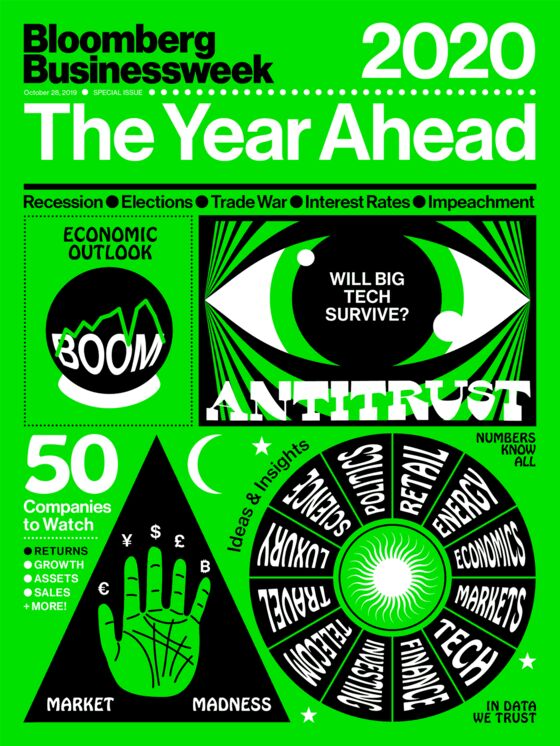Mark Carney Has His Hands Full No Matter How Brexit Goes
Mark Carney Has His Hands Full No Matter How Brexit Goes
(Bloomberg Businessweek) -- How difficult is it to do forecasts right now?
One is doing scenarios as opposed to forecasts, because there are very different scenarios whether we have a smooth transition to a deeper trade relationship with the European Union versus whether we have no deal. You can’t just take those two scenarios and do the average and say that’s what’s going to happen.
This entrenched uncertainty about the future of the trade relationship is having a consequence for business investment: We think the level is about 25% below where it would have been otherwise.
What about the global economy? How does that affect things?
Well, the global economy is going to weigh on this regardless. The big questions we’re all asking at [the IMF and World Bank] meetings are these: Are we stabilizing the global economy as a whole? Is macro policy right? Globally, is there enough monetary stimulus? Is fiscal going to come in too?

There’s been quite a lot of volatility in the pound because of Brexit.
Obviously, this drives the currency. It drives economic prospects in the medium term. Let me underscore one important point. This is one of the most flexible economies in the world. Household balance sheets and corporate balance sheets are in good shape. The financial system in good shape. With the transition, this economy will adjust.
Would you stay on as governor if you were asked to?
It’s all fine and good for me to say, “Don’t worry, the financial system is ready, and I’m off back to Canada. Good luck.” But no. I’m here at this moment in order to ensure there is a smooth transition to my successor. The government’s got plenty of time to choose a successor and there are many qualified candidates.
Where is the biggest disruption in crypto going to come from—big tech or central banks?
We’re going to preserve monetary sovereignty. The question is where do you put the boundary between the public sector and private innovation. Because absolutely a revolution in payments can benefit all our citizens and make the world a much more stable place. It can create huge opportunities for smaller businesses. You can save people hundreds of millions of pounds per year in the U.K. We at the BOE are interested in advancing that, but on our terms. This is not going to be something that happens and then the authorities run around after the fact and try to figure out how to regulate.
To contact the editor responsible for this story: Cristina Lindblad at mlindblad1@bloomberg.net
©2019 Bloomberg L.P.